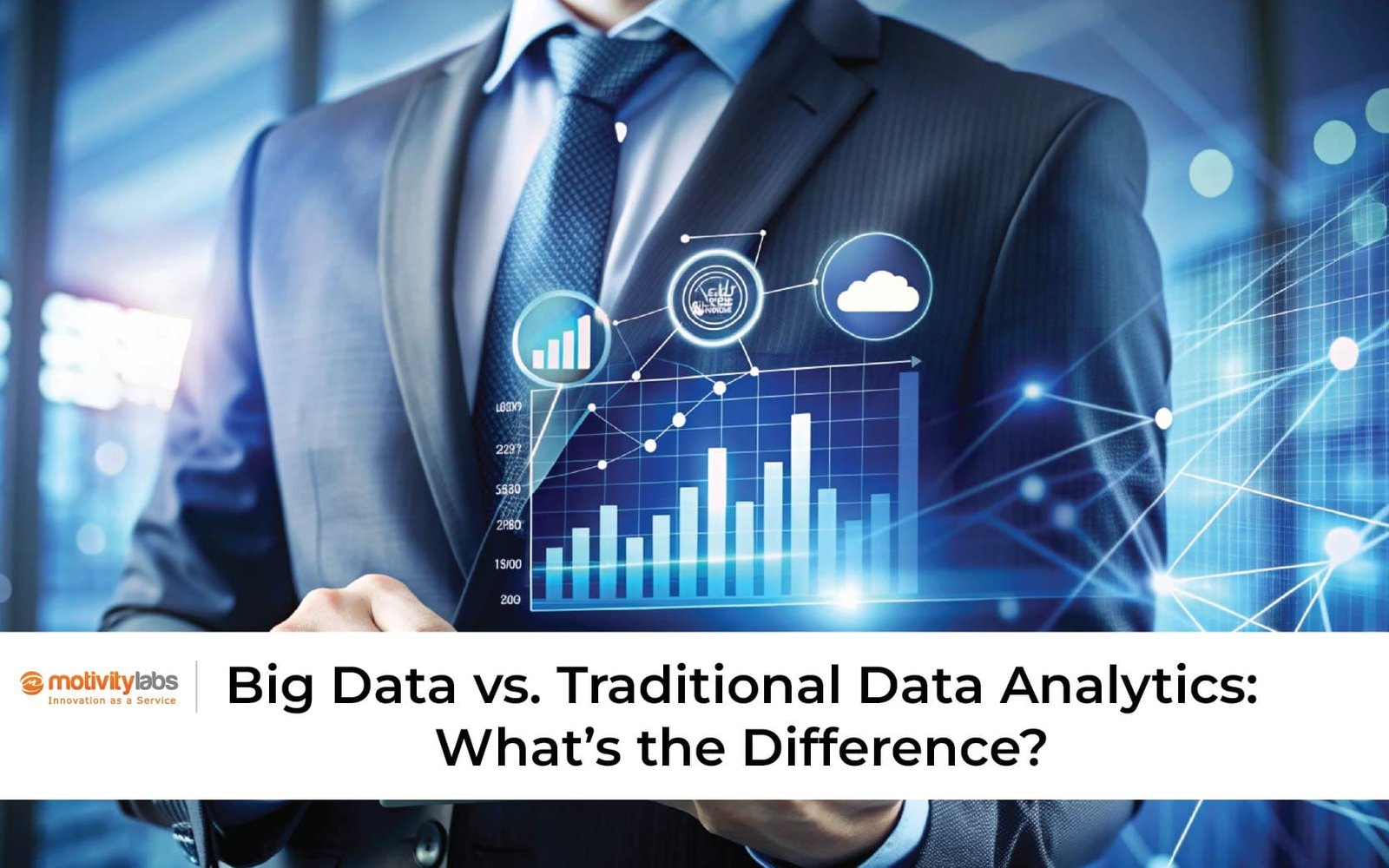For ages now, insurance companies have been providing financial protection to people and businesses against various risks. However, in the face of increasing intricacy in risk management and rising individuality of services needed, this traditional mode of insurance has become outdated. This is where data analytics in insurance industry can be handy.
In insurance, data analytics employ statistical models and machine learning algorithms to examine big data sets that can provide valuable insights helping insurers make better decisions, increase customer engagement, and optimize their operations.
What is Insurance Data Analytics?
Insurance data analytics is a term used to refer to an analysis of information on insurance policies, claims, customers, and other relevant aspects, for insights that can be applied in business decision-making. This encompasses research on information from various sources such as policy applications, premiums; claims; and customers’ demographics among others.
The objective of carrying out insurance data analytics is to detect any trends, patterns, or anomalies that can help insurers understand their clients better, reduce fraud, or improve their overall performance.
How Does Data Analytics Benefit Insurers?
Insurers benefit from data analytics in insurance industry in several ways. Firstly, it enables them to identify high-risk customers and customize their products and services accordingly. For instance, a firm can employ data analytics in insurance industry to identify clients who are more likely to file claims due to factors such as age, occupation, or location. This way, the company will give the customer coverage based on individual needs.
Data analytics for insurance companies has also enabled streamlining of operations and reduced costs. Automation and data analytics tools have equally provided a way through which companies can reduce their manual processes thus enhancing time management.

How is Data Analytics in Insurance Industry Transforming the Entire Field?
A good example is an insurer who may utilize data analytics for insurance companies when trying to identify its own clients whose claims, for instance, are higher because of similar reasons as mentioned earlier. They (insurers) might therefore provide customizable risks borne policies that are suited for these kinds of customers.
Also, through automation and the use of analytical tools, it has been possible for insurance and data analytics to streamline their operations thus reducing manual tasks and enhancing efficiency.
Why Do We Need Data Analytics For Insurance Companies?
Data analytics, on the other hand, helps to provide useful insights that enable insurers to make better decisions. Refinitiv reveals that identifying high-risk customers would have been impossible; detecting fraudulent activities would have posed a challenge while personalizing their services could hardly be made possible by these insurers.
Further still, data analytics in insurance industry enables them to stay competitive within a rapidly changing environment. Through the use of these software tools, they can differentiate and propose value propositions that are unique in nature.
Use Cases of Data Analytics in the Insurance Industry
Data analytics in insurance industry has various uses in the insurance sector. Some of the most common ones include:
1. Risk Assessment:
This is the stage at which data analytics of an insurer’s can allow them to assess the risk profiles of policyholders considering their demographic, behavioral, and environmental influences.
2. Claims Prediction:
Predictive analytics in insurance industry permits insurers to predict probabilities of claims occurrence utilizing historical information among other factors.
3. Customer Segmentation:
Segmentation of customers enables insurers to apply statistical methods such as cluster analysis based on socio-demographic, psychographic, or geographical factors.
4. Fraud Detection:
Insurers must use data analytics by which they may examine a number of data sources that might aid in discovering fraudulent activities.
5. Personalized Coverage:
Data analytics for insurance companies would enable a provider to create coverage options tailored specifically for unique customer needs.
Benefits of Data Analytics for Insurance Companies
There are a lot of advantages of data analytics in insurance companies. Some of the most significant ones are:
1. Enhanced Decision Making:
Data analytics avails insurers with invaluable insights that can be useful in their decision making.
2. Cost Savings:
Data analytics can be employed by insurers in order to enhance their business processes and reduce expenses.
3. Personalization:
In the insurance sector, customer-specific covers can be provided using data analytics in insurance industry.
4. Fraud Detection:
Data analytics for insurance companies in relation to fraud will always keep losses away.
5. Market Competitiveness:
Even during market turbulence; the use of data analytics ensures that these businesses remain on top with stiff competition.
How is Data Analytics Changing the Insurance Industry?
The insurance sector is currently undergoing several transformations brought about by big data analytics. One example would be customized personal coverage from insurers tailored to individual customer needs; while another – saving costs through operational efficiency.
Challenges That Insurance Companies are Facing and How to Overcome Them?
There are several challenges faced by insurance and data analytics. Some of the most notable challenges are:
1. Data Quality:
The insurance industry is faced with the challenge of the quality of data. This can cause wrong analysis and decision-making, due to inaccurate or incomplete data.
2. Data Privacy:
Insurance and data analytics are also facing privacy problems. They must ensure that they observe the regulations concerning private information while collecting and analyzing customer data.
3. Talent Acquisition:
Insurers should obtain expertise in examining and interpreting complicated sets of data.
4. Change Management:
Insurers should incorporate change management as part of their culture and encourage employees to embrace the use of analytic tools.
To tackle these problems, insurers need to have proper investment in their data infrastructure, hire skilled professionals, and put strong enforcement on the governance frameworks concerning the use of data. In addition, insurers have to reach out effectively to their employees and customers so as to build trust and confidence in using data analytics.

Stages to Use Insurance Data Analytics
Insurance Data Analytics has several stages before it can be used meaningfully for purposes that add value to business processes such as:
1. Data Collection:
Information from different sources like policy applications, premiums, claims, and customer demographics among others must be obtained by insurance operators.
2. Data Storage:
By secure means that permit retrieval for analyses in future times, should information stored by the insurer be kept.
3. Data Analysis:
Insurers must use statistical models and machine learning algorithms for data analytics in insurance industry so as to obtain valuable insights.
4. Insight Generation:
Insurers must generate insights from the analyzed data to inform business decisions.
5. Action Planning:
Insights should be used by insurers in planning their actions, with the aim of improving their processes and customer experience.
What is the Role of Predictive Analytics in Insurance Industry?
The following are some of the implications of predictive analytics in insurance industry. Predictive analytics in insurance industry can determine which customers will likely file claims under a policy and offer products that suit them best. This will help streamline their underwriting processes, check fraud cases, and improve customer engagement. It also helps the insurer determine the likelihood of a claim being filed.
Conclusion
Data Analytics has transformed insurance business significantly, enabling enhanced decision-making based on information rather than intuition, better interaction with customers as well as improved operations.
For the insurers to fully utilize business analytics they should invest in data infrastructure, employ professionals who have the necessary skills, and put a robust data governance framework in place. They will then be able to remain competitive in the rapidly changing market and provide personalized coverage options that cater to individual customers’ needs.
Choose Motivity Labs as Your Trusted Insurance Analytics Partner
Motivity Labs is an AI and analytics company with a focus on the insurance domain. With years of experience in developing hundreds of predictive models for some of the largest insurers globally, Motivity Labs has gained deep domain expertise.
Motivity Labs‘ technology and track record of ROI makes it the ideal partner for insurers looking to gain a competitive advantage through insurance-specific data and analytics. So if you are looking to find a reliable partner who can help you harness the power of data analytics, look no further than Motivity Labs today!



